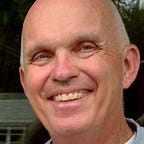“Living” is it survival or thriving, or something other?
Today, and in the future, I believe we may need to adopt and adapt our lives to be based upon the principles of diversity, flexibility, keen observation of the times. For a number of years, I have observed a volcanic rock in the formation around a pond I built several years ago.
December 13, 2019, corner of 16th and Jefferson Streets, Boise
sometimes in Winter
I gaze into the streets
And walk through snow and city sleet
Sometimes in Winter
Forgotten memories
Remember you behind the trees
With leaves that cried
Steven E. Katz, Blood Sweat, and Tears
In her book, Gathering Moss: A Natural and Cultural History of Mosses, Robin Wall Kimmerer, relates that when observing her neighbors as they work growing their family farm: “survive by resilience rooted in flexibility, where stability comes from diversity (p. 80).
Ian Scoones, observing pastoralists (people who for centuries have been herding cattle, sheep, and goats in Kazakhstan) states; “The key to pastoralists’ survival and prosperity is actively managing uncertainty — not just reactive coping — and maintaining awareness of the dangers of ignorance and surprise”
Ian Scoones, “What Pastoralists Know, Aeon Magazine”, https://aeon.co/essays/what-bankers-should-learn-from-the-traditions-of-pastoralism January 2021, accessed January 2021.
Scoones and Kimmerer are onto defining and measuring true life, real living that endures. Scoones sees the resilience of people who watch the weather, comprehend the necessity for flexibility and forecasting into the future. Kimmerer’s life study of literally living with mosses has taught her the fine art of observation. Moss is the simplest of plants, one of the oldest to make the transition from sea life to living on the most unlikely and uninhabitable places like rocks and on roofs and between cracks in concrete walkways.
I resonant with Scoone's wisdom, urging bankers to learn from sheepherders. I recall learning from my father, a banker, two or three important values about being alert to the conditions of the times. Dad, having grown up during the Great Depression, had a twin value system of never judging a person by the clothes they wore, and always keep one’s wealth close to home. When we lived in Moscow, Idaho his customers wore bib overhauls and drove tractors. Heck, these folk had enough money to buy and sell the bank Dad worked at, but they really liked him because he did not ever judge them. More than once Dad was pointing out a person who was in an almost comical outfit and looked dirty and maybe smelled. Dad would say, “Larry here is an example of a guy who owns a family farm that produces crops of wheat and other grains. He is a millionaire, but you never know it.” Later, when Dad had moved on to another city and worked in a Savings and Loan, he warned the up-and-coming younger people to not invest their money in real estate in another state. One Friday, they came in and fired in for telling them this principle of keeping other people’s money at home. Sure enough soon the entire Savings and Loan industry went broke, closed down. I don’t think Dad’s experience caused the entire collapse, but I believe that the truth of his principles played out.
For another example of the need to learn how to thrive, read Growing Uncertainty in the Central Valley (California Chronicles) by Anna Wiener, The New Yorker online magazine, published September 15, 2021, https://www.newyorker.com/news/california-chronicles/growing-uncertainty-in-the-central-valley accessed Sept. 16, 2021.
